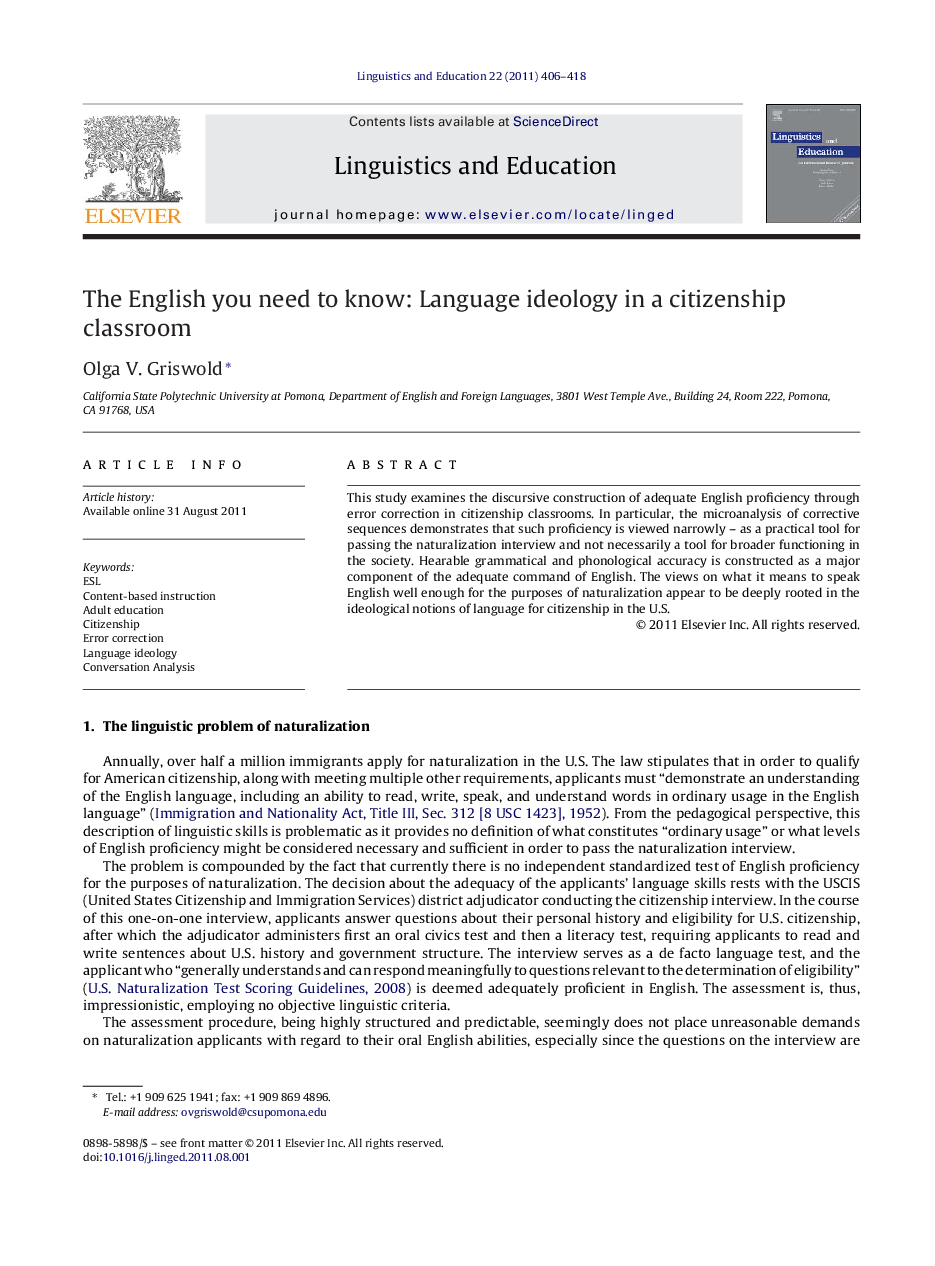| Article ID | Journal | Published Year | Pages | File Type |
|---|---|---|---|---|
| 366233 | Linguistics and Education | 2011 | 13 Pages |
This study examines the discursive construction of adequate English proficiency through error correction in citizenship classrooms. In particular, the microanalysis of corrective sequences demonstrates that such proficiency is viewed narrowly – as a practical tool for passing the naturalization interview and not necessarily a tool for broader functioning in the society. Hearable grammatical and phonological accuracy is constructed as a major component of the adequate command of English. The views on what it means to speak English well enough for the purposes of naturalization appear to be deeply rooted in the ideological notions of language for citizenship in the U.S.
► I examine the discursive construction of adequate English proficiency in citizenship classes. ► Linguistic error correction during civics classes for adults plays a crucial role in the process. ► The notion of adequate language skills is rooted in language ideology for U.S. citizenship. ► English proficiency is constructed as a practical tool for passing the citizenship test. ► Hearable grammatical and phonological errors are discouraged.
